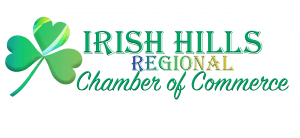First-Time Founder? Here’s What Those Business Buzzwords Actually Mean
Starting a business is an exciting, high-stakes decision moment. But if you're just getting started, the terminology alone can be overwhelming. Whether you're forming your first LLC, drafting your first contract, or navigating funding options, understanding key terms can boost your confidence — and help you make better decisions faster.
This guide breaks down the most important business terms for beginners, with a glossary-style table, an FAQ, and examples to help you put each concept into context.
Why Business Language Matters
Every transitional decision in your business journey — hiring your first employee, opening a second location, seeking funding — involves contracts, relationships, and responsibilities. Learning the language of business early helps you avoid costly misunderstandings, communicate clearly with stakeholders, and spot opportunities others might miss.
As you grow, these terms won’t just help you navigate deals and documents. They’ll also help you speak the language of investors, partners, and procurement officers who may vet your company through platforms like Crunchbase or LinkedIn Company Profiles.
Letters of Intent (LOIs): A Tool for Pre-Deal Clarity
One key term many new entrepreneurs encounter early is a Letter of Intent (LOI).
A letter of intent is a document that outlines a preliminary agreement between two or more parties before formalizing a full contract. Think of it as a handshake on paper — it sets expectations and terms without locking anyone in just yet.
Businesses often use LOIs to signal upcoming deals or partnerships. It’s a way to show intent and transparency, whether you're pursuing a merger, leasing a space, or entering a service agreement. If you want a more detailed walkthrough of how LOIs function (including templates and legal considerations), check it out here.
Essential Business Terms for Founders
|
Term |
Definition |
Why It Matters |
|
Sole Proprietorship |
A business owned and operated by one person, with no legal distinction. |
Easiest to start, but the owner is personally liable for debts. |
|
LLC |
Limited Liability Company, a hybrid of a corporation and a sole proprietor. |
Protects personal assets while offering flexible tax treatment. |
|
Equity |
Ownership stake in a business. |
Used when raising funds or sharing ownership with partners or investors. |
|
Runway |
How long your business can operate before it runs out of money. |
Vital for planning cash flow and understanding how fast you need revenue. |
|
Churn Rate |
Percentage of customers who stop using your service over time. |
Helps you measure customer retention and long-term viability. |
|
COGS |
Cost of Goods Sold. |
Key to calculating profit margins and pricing strategy. |
|
Gross Margin |
Revenue minus COGS, expressed as a percentage. |
A core indicator of financial health. |
|
B2B / B2C |
Business-to-Business / Business-to-Consumer. |
Shapes your sales, marketing, and product strategy. |
|
Net 30 / Net 60 |
Invoice payment terms (client has 30 or 60 days to pay). |
Impacts your cash flow — especially critical when working with agencies or government buyers. |
|
Burn Rate |
Monthly spending rate for startups. |
Used by investors to assess how fast you're using capital. |
Bulleted Quick Reference: 10 More Terms You’ll Hear Often
-
KPI (Key Performance Indicator): A measurable value tied to a business goal.
-
SaaS (Software as a Service): A cloud-based delivery model for software.
-
Term Sheet: A summary of the terms of an investment deal.
-
P&L Statement: Profit and Loss statement; shows revenue, expenses, and profit.
-
Accounts Receivable: Money owed to your business by customers.
-
Founder Vesting: The schedule by which equity is earned by founders.
-
Bridge Round: A short-term funding round before a larger one.
-
Conversion Rate: The percentage of users who take a desired action.
-
Customer Acquisition Cost (CAC): Total cost to acquire one customer.
-
Bootstrapping: Growing your business without external investment.
FAQ: New Entrepreneur Questions
What’s the difference between revenue and profit?
Revenue is your total income before expenses. Profit is what’s left after subtracting your costs.
How do I protect my business name?
Registering your LLC is the first step. You might also want to file a trademark through USPTO.gov.
Do I need a business bank account?
Yes. It helps keep personal and business finances separate and simplifies taxes. Providers like Bluevine and Novo are popular options.
Q: What’s a registered agent?
A: A person or service responsible for receiving legal documents on behalf of your business. If you're forming an LLC, you'll need one. Some services, like Northwest Registered Agent, specialize in this.
Featured Tool: Bonsai
If you're a freelancer or solo founder juggling contracts, invoices, and proposals, Bonsai offers an all-in-one toolset designed to simplify your back office — with pre-built templates, time tracking, and tax reminders included.
Learn the Language, Build with Confidence
You don’t need an MBA to run a successful business. But learning the key business terms — and when to use them — helps you move with confidence, communicate with partners, and avoid common pitfalls. Bookmark this guide, revisit it often, and don’t be afraid to ask clarifying questions as your business grows.
Discover the charm and excitement of southern Michigan by visiting the Irish Hills Regional Chamber of Commerce and plan your next adventure with our vibrant events and activities!
This Buy Local Coupons/Hot Deal is promoted by Irish Hills Regional Chamber of Commerce.

